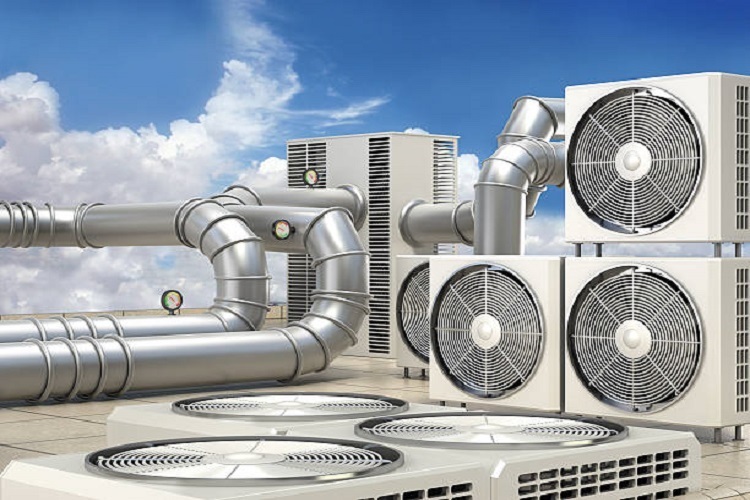Your HVAC system is a critical ingredient in maintaining standard comfort for your establishment. Unfortunately, your HVAC system could be the largest consumer of your energy bills, costing you more money. HVAC equipment consumes about 40% to 60% of energy in commercial buildings, depending on the climate and other reasons.
Luckily, your HVAC systems can become more energy efficient with the help of new advancements in technologies. This progress can help you save money from costly repairs and energy bills. It can also contribute to the environment by decreasing your property’s carbon footprint. If you’re looking for different ways to make your HVAC systems more energy-efficient, then this article is what you need. Let’s take a look at the recent trends in HVAC systems to improve energy efficiency in establishments.
Table of Contents
Transparency of Energy Use
Current enactments in California and New York allowed the release of publicly disclosed building energy use. This movement will likely set up a trend for other U.S. states and cities, making businesses more accountable for their energy use. Product manufacturers also see this as leverage for increased transparency with energy usage product declarations. This transparency will set the baseline for energy usage. Building owners can access and quantify the financial benefits of switching to more energy-efficient alternatives. Thus, there is a greater need for highly efficient HVAC systems, integrated building automation, and overall knowledge about maximizing system efficiencies. Also, consider installing HVAC access doors and panels for easy access on regular checkups and monitoring how much energy your HVAC has consumed.
Net Zero Efficiency
A net-zero might be impossible to obtain, but it is now proven possible with the help of LEED certifications and ENERGY STAR-approved products. Architects and commercial building developers are releasing net-zero energy-efficient designs to differentiate from business competitors. As mentioned a while ago, HVAC is one of the most prominent energy uses in a commercial building. Thus, HVAC contractors should be aware of all the various options available for the HVAC system design and the other products used in the construction to help the owners achieve net-zero energy.
Alternative Energy Sources
Many establishments adapt to alternative energy sources to help lower their utility costs, achieve LEED standards, and generate electricity. One of the popular choices is solar power. You can generate solar energy to create electricity to fuel HVAC systems and other electricity-generated appliances by installing solar panels. Professionals can easily install this equipment on roof buildings. It is also eco-friendly and can help you decrease your energy costs. Furthermore, there are already available solar-powered HVAC systems in the market that can make running the HVAC system even more efficient.
Daylighting/ Natural Light
Numerous new building designs are incorporating the concept of daylighting to reduce energy costs by up to one-third. This concept is done by positioning windows, skylights, or other openings and reflective surfaces to utilize the sun’s natural light. This method is ideal for a daylight-responsive lighting control system that can automatically adjust brightness when daylighting is insufficient. With this, it can keep energy uses and costs in control. The addition of natural light in your commercial buildings will impact the overall size of the HVAC units, their location, configuration of the ductwork and return air supply, the location of the controls, and the integration into the building automation system.
High-Efficiency HVAC Systems
To help achieve current building efficiency standards, Professionals developed High-efficiency HVAC units. High-efficiency HVAC contains excellent new features such as MSAV (Multi-Stage Air Volume) supply fan technology and ASD (Adjustable Speed Drives) that can save energy by decreasing the motor speed to adapt to varying HVAC loads.
Different Product Trends for HVAC Energy-Efficiency
Here are some of the innovative equipment and materials that manufacturers have also developed to help maintain an energy-efficient HVAC system;
- Outdoor Air System– Commercial HVAC contractors are looking for ways to enhance the humidity control by conditioning outdoor makeup air and separating it from indoor return air. This method removes moisture from the outside air, reducing the cooling system’s load.
- Displacement Ventilation- This method uses a low-velocity stream of fresh, cold air at floor level to replace stale air near the ceiling, which improves indoor air quality. The energy-saving potential varies by building and system design as well as climate.
- Electronically commutated motors– These motors come with a variable-speed component that helps save energy by changing the HVAC blower speed to match demand in your commercial building.
- Energy recovery ventilation- The ERV system extracts energy from exhausted air and uses it to precondition incoming makeup air. This system can save energy by reducing heating and cooling system needs while maintaining comfortable indoor air levels.
- Zero-degree heat pumps- This device works well in cold climates that are down to 0°F, and those who don’t have access to technology. Heat pumps can provide energy efficiency up to more than 100 percent since they move heat rather than create it.
- Desiccant dehumidification– This process consumes moisture with a liquid desiccant solution and then evaporates through heat. This system can save energy by removing humidity and precooling makeup air. Thus, reducing the overall air conditioning load.
The quality of your HVAC systems is paramount in terms of the overall comfort, mood, productivity, and health of the people occupying your commercial building. If not taken care of, this can lead to more costly repairs and increased energy bills that can affect your company’s growth. With all these available advancements and options, an energy-efficient HVAC is attainable. Consider switching to a more pocket-friendly and eco-friendly alternative. You will indeed have no regrets about making this wise decision.

